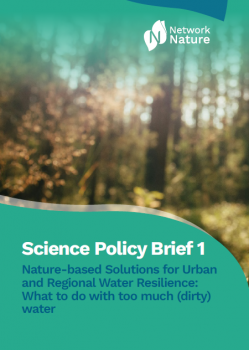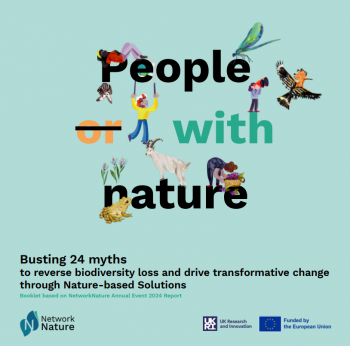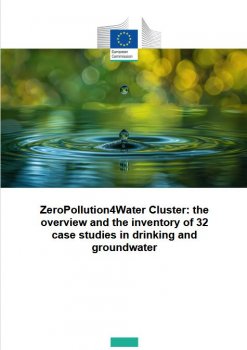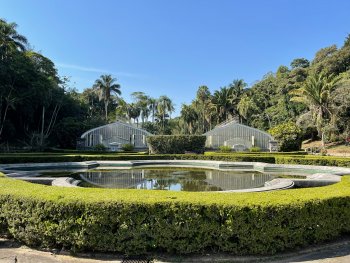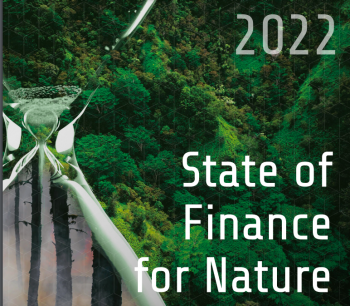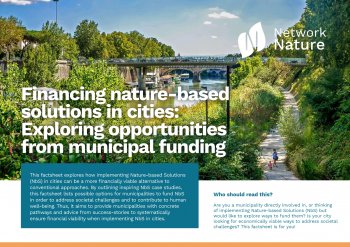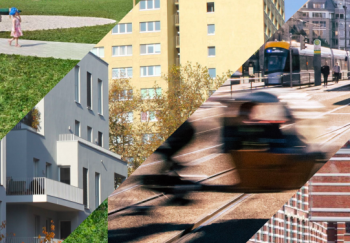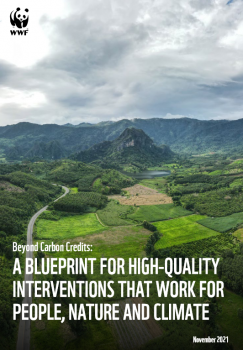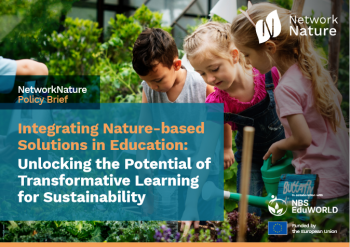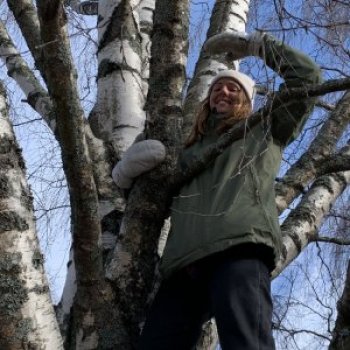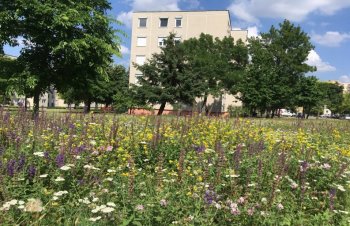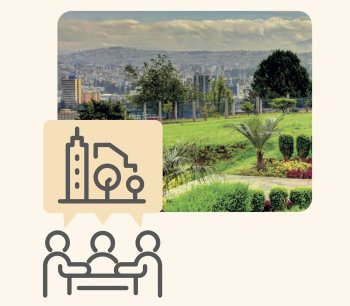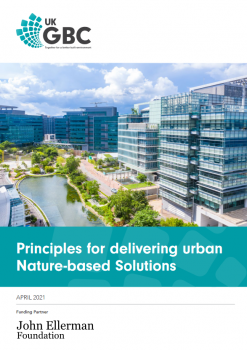Nature-based Solutions for Urban and Regional Water Resilience: What to do with too much (dirty) water
This policy brief explores the opportunities and challenges in the integration of Nature-based Solutions (NbS) into urban and regional water resilience planning. The brief draws from research, policy, and good practice from the wider NbS community, and presents recommendations to enhance the
The social-ecological system in the study of Poznań’s integrated geography
The article presents the contribution of the Department of Integrated Geography of the Adam Mickiewicz University in the development of methodological framework and practical applications within the concept of the social-ecological system. The ongoing work focuses on several research fields. They
People with Nature: Busting 24 Myths to Reverse Biodiversity Loss and Drive Transformative Change through Nature-based Solutions.
As climate change and biodiversity loss intensify, the persistence of certain myths can hinder the transformative change needed to build more sustainable societies. Preconceived ideas rooted in outdated practices or incomplete truths can slow down this change by hampering awareness and obstructing
ZeroPollution4Water Cluster: the overview and the inventory of 32 case studies in drinking and groundwater
This report aims to provide an overview about the 32 cases studies of seven ZeroPollution4Water Cluster projects. These seven projects received funding under Horizon Europe Research and Innovation programme in 2022, aiming to prevent groundwater pollution and secure drinking water quality.
CONEXUS Policy Brief 5 - Green corridors to connect urban ecosystems
This policy brief presents contributions from the city of São Paulo, Brazil. The city is pursuing the establishment of green corridors as a strategy to reverse the negative effects of urbanisation processes. This brief presents the Municipal Plan for Protected Areas, Green Areas and Open Spaces (
- Document
Characterisation of the genetic diversity of the chestnut heritage, soil biodiversity and biofertility Emilia-Romagna
Collective effort tostudy the genetic variability of chestnut germplasm and to enhance and promote the role of the chestnut grower as a 'guardian' of biodiversity and land protection.
State of Finance for Nature 2022 Report
The second edition of the State of Finance for Nature report launched today reveals that nature-based solutions are still significantly under-financed. If the world wants to halt biodiversity loss, limit climate change to below 1.5C and achieve land degradation neutrality by 2030, current finance
NetworkNature Factsheet 4 - Financing nature-based solutions in cities: Exploring opportunities from municipal funding
This factsheet explores how implementing Nature-based Solutions (NbS) in cities can be a more financially viable alternative to conventional approaches. By outlining inspiring NbS case studies, this facthseet lists possible options for municpalities to fund NbS in order to address societal
Guiding document for urban development in Europe: The New Leipzig Charter
The charter focuses on the common good and local authorities that are able to act. This is also reflected in the title “The transformative power of cities for the common good”. The charter provides a strategic compass by which communities, Cities and metropolises of all EU member states can host.
Conservación de la biodiversidad en el ciclo integral del agua.
La finalidad de esta guía es fomentar el desarrollo de iniciativas que favorezcan la conservación y la restauración de la biodiversidad en instalaciones del ciclo del agua y su entorno. Estas se componen de estaciones de depuración, de potabilización y otras infraestructuras vinculadas al ciclo del
- Document
Developing a Novel Martelloscope for Assessing Biodiversity and Growing Stock Volume with the aid of a Digital Twin.
Monitoring and quantifying biodiversity variation through silvicultural choices made with the marteloscope adds significant value to sustainable forest management, enhancing ecosystem services and production aspects.
- Video
PHUSICOS: Unstable till slope at Santa Elena
The slope at Santa Elena has been pointed out as one of the high-risk locations along road A-136, which is an important route between Spain and France (road RD-934 in France). The problem is erosion and instability in a steep slope, cut in a thick till deposit. This is an end moraine formed by the
Beyond Carbon Credits: A BLUEPRINT FOR HIGH-QUALITY INTERVENTIONS THAT WORK FOR PEOPLE, NATURE AND CLIMATE
This document sets out WWF’s views on implementing high-impact and high-quality nature-based solutions for climate mitigation from the perspective of the people and the places where we work, as a companion to WWF’s Blueprint for Corporate Action on Climate and Nature, which focuses on business-
Integrating Nature-based Solutions in Education: Unlocking the Potential of Transformative Learning for Sustainability
This policy brief provides a timely and brief overview of the current policy incentives for NbS and sustainability education in Europe, identifies key barriers and opportunities in supporting education systems in taking up NbS education and offers key recommendations for policy makers, educators,
Natural environments, psychosocial health, and health behaviors in a crisis – A scoping review of the literature in the COVID-19 context
The COVID-19 outbreak led to major restrictions globally, affecting people’s psychosocial health and their health behaviors. Thus, the purpose of this scoping review was to summarize the available research regarding nature and health in the COVID-19 context. Overall, the findings indicate that
GoGreenRoutes Introduction Video
Learn about GoGreenRoutes' core approaches and meet the project's partner cities in this short introduction video.
ZÖLD-KÉK INFRASTRUKTÚRA: "Természet-alapú megoldások támogatása" című műhelytalálkozó előadásai
A 2022. május 3-5. között megrendezésre kerülő műhelytalálkozó első napján bemutatásra kerültek a "Zöld és kék települési infrastruktúra támogatása" c. projekt keretében megszületett szakértői anyagok. Az esemény második napján gyakorlati példákon keresztül került bemutatásra, hogy
Urban Nature Gateway
A catalogue of tools and resources designed to help tackle some of the most pressing shared challenges around urban nature-based solutions (NbS). It provides practical insights and resources for addressing six key challenge areas: NbS assessment; co-governance; citizen engagement; inclusion and
Principles for delivering urban Nature-based Solutions
This report aims to enable more ambitious targets related to NbS, climate resilience and ENG, and ultimately increase the application of NbS, both wild and cultivated, in urban areas. To achieve this, the report sets out six principles to assist organisations and individuals in the design,
- Paper
Nature-based solutions coupled with advanced technologies: An opportunity for decentralized water reuse in cities
Decentralized water reuse in cities is a prominent alternative to mainstream top-down models for urban water treatment, which are based on centralized, linear dynamics of resource management. In this sense, Nature-based Solutions (“green” technologies) coupled with advanced technologies (“grey”
- ‹ previous
- 15 of 20
- next ›

